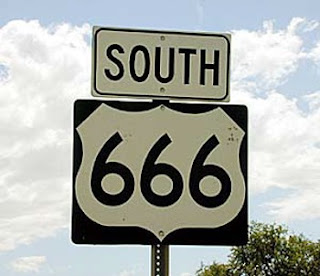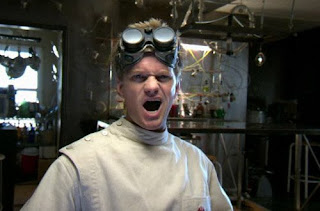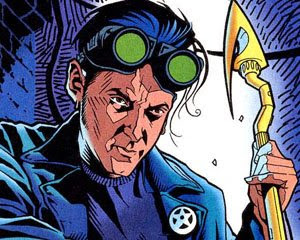To my mind, one of the few disappointments in all of Sir Arthur Conan Doyle’s original Sherlock Holmes tales is the introduction of his nemesis Professor Moriarty.
Professor James Moriarty first appears in The Adventure Of The Final Problem, in which Holmes is revealed to have been thwarting the plots of ‘the Napoleon of Crime’ for some time. Holmes and Watson flee England to escape retribution from Moriarty and his men. The two of them travel to Switzerland, and whilst walking near the Reichenbach Falls, Watson is called back to their hotel to assist someone who’s been taken ill. This is a ruse, and when Watson realises and returns to the mountain path, he finds a note from Holmes saying as much, and that he expects both he and Moriarty will fight to the death. Watson sees signs of a struggle on the path, and concludes that Holmes and Moriarty, whilst fighting, have fallen to their deaths.
I’m summarising it there (and inevitably losing a lot of the original tale’s skill and charm; if you haven’t read it, I urge you to do so), but that’s the general gist. It’s not a bad story in and of itself, and it’s pretty well-known that Doyle was trying to kill off Holmes in an impressive way so he could write other things, Holmes having become a millstone, albeit one which was a nice earner. The main problem – as opposed to the Final Problem – I have with it is that the introduction of Moriarty as Holmes’s polar opposite, and his demise at Reichenbach, all occur within the one story. Whilst Holmes is portrayed as having been aware of Moriarty’s nefarious ways for some time, the reader hasn’t really had much chance to sense that an arch-foe is on the move, and though later stories build the mythology of Moriarty’s wicked ways, we can only take Holmes’s word for it. Well, Holmes’s comments as reported via Watson through Doyle, but you know what I mean.
Anyway, I’ve been thinking about this recently because the novel I’m currently working on (more in my head than on the page at the moment, granted) The Body Orchard, features a return match between a deeply villainous chap and the detective who caught him last time. Part of the problem I’ve been mentally wrestling with has been that of establishing the stakes involved, and the backstory. I’m taking my cue somewhat from Thomas Harris’s Red Dragon, wherein the reader hears much about Hannibal Lecter from his opposite number, Will Graham; Graham’s portrayed as an intelligent if troubled man, whose references to Lecter make it very clear that he’s a man who should never be underestimated or trusted, even for a moment. In much the same way as Holmes tells us that Moriarty’s a baddie of the highest order, we learn about the villain from a character who we’ve already started to root for or empathise with. Granted, Holmes is less human than Graham, but I think that the comparison’s a reasonable one. And there are other examples of characters, or events, being made portentous by more virtuous characters – Yoda’s line “You will be” in The Empire Strikes Back, and the Doctor’s look of panic at the end of the Doctor Who episode Turn Left, spring to mind, and I’m sure you can think of others.
So anyway, this is something that I’ve been mulling over recently – the challenge of making it clear that a villain is someone to be reckoned with, without having to show them running over blind orphans with a combine harvester. I’m feeling fairly comfortable with the solutions I’ve come up with, but now I have another question: since my villain is supposed to be so very clever indeed, how do I demonstrate that in a fashion that doesn’t look token or unconvincing? Holmes and Moriarty were only ever as smart as Doyle, and Will Graham and Lecter as intelligent as Thomas Harris (and in the book Hannibal, Lecter appears to have lost a lot of his intelligence, but I was ferociously disappointed with that book, and I won’t get into that now).
In exactly the same way, my characters always have the disadvantage of only ever being as clever as me, which – as is abundantly clear to anyone who reads this blog on a regular basis – means that if I portray them as, say, walking upright or using tools, they’re already pushing at the boundaries of my knowledge.
*With apologies to Bill Shaky (Macbeth Act 1, Scene 2)
 Welcome, all, to post 666 on the blog.
Welcome, all, to post 666 on the blog.






